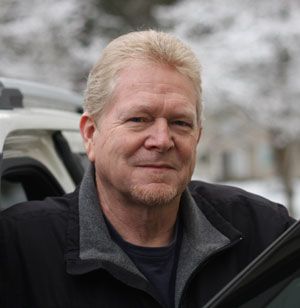At least I’m not alone
Two weeks ago, when I wrote of the flagrant dispensing of liquid ice melter onto our roadways, I wondered if others shared my concern. I admitted then that the corrosive deicer has a valid place in the arsenal for winter road maintenance, along with plows and sand, but also discussed the negative aspects of its overuse.
My apprehensions of being a “loner” on this topic were assuaged when a deluge of email began as soon as the column was published.
The only “support” of the stuff came, heavily tempered, from reader B.L., who wrote, “I like the liquid spray that melts ice — unless the temperature drops below a certain magic point that likely is not recognized by the ordinary driver.” Then added, “BUT, I hate the sticky stuff that corrodes my car and reduces effectiveness of windshield washing fluid.”
So, B.L. is not a TOTAL fan. And I had failed to mention how the oily concoction ruins the vision through our windshields.
In fact, many of the responses pointed out negative aspects of the offensive liquid that I never spoke of. Like J.L., who noted, “Magnesium chloride does not like ice tires. My wife’s Lincoln has Goodyear Extra Grip Ice, my 4X4 has Blizzaks. They both appear to be more loose on that slime than on ice. Also if it goes below 20 degrees it is becomes a real hazard.”
That sentiment was echoed by J.B., a truck driver, writing,” I agree with you one hundred percent, they go a whole bunch over board. Besides that crap is extremely slick if there is no moisture on the road.”
I lacked room in the previous column to discuss environmental and health hazards associated with ice-melting chemicals, but readers wanted it known. G.E. wondered, “Got your point on corrosive chemicals harming our vehicles; BUT the point needing to be stressed must be: where does this gunk go? Up into our air to be breathed? Down into our groundwater?”
And H.I. offered this scathing sentiment, “This is not only a huge waste of money and harms our vehicles, but it is also very harmful to the environment. Those toxic chemicals wash into our groundwater and surface waterways.”
A retired WSDOT employee, E.K., spoke about the onset of liquid deicer use, stating, “When chlorides first became the big fix for ice and snow, the equipment maintenance shop was the first to sound the alarm. It wasn’t long before the key pieces of equipment were in the shop for electrical problems tied to the chlorides being used.”
Truck driver J.B. also mentioned the liquid’s malicious metal attack, commenting, “It eats wires from the inside so you cannot see where the break is.”
Regarding its rust-advancing capability, C.K. wrote, “It’s really tough on your vehicle. My 2006 GMC Sierra that I purchased new in Dec of 2005 has some pretty good surface rust taking hold on the frame. The aluminum wheels I had to purchase for my 2012 Buick Enclave to put the snow tires on are already starting to pit.”
But it’s even worse for T.M, who complained, “Our main mode of transportation is a 2004 Subaru that we bought new and had to have some repair work done on it last summer. The mechanic told us that some of the repairs could not be made because of the rust on some of the bolts.”
W.W. hinted at overuse, pointing out, “… some states only spray in the following places: shaded curves, intersections, over and under passes, railroad crossings, bridge approaches and elevation changes.”
M.C. summed things up, professing, “With the superior tire technologies of today and with many cars being all wheel drive, you would think that the use of chemical deicers would be less, not more. I also would prefer to not have my vehicle damaged by these chemicals, but like you I have no choice.”
And M.N. agreed wholeheartedly with my original take, claiming, “Your column expressed my own views on the subject of excessive de-icing with great clarity. I could not have said it better.”
Thanks for your responses — I wish I had room for all of them!
Readers may contact Bill Love via email at precisiondriving@spokesman.com.
